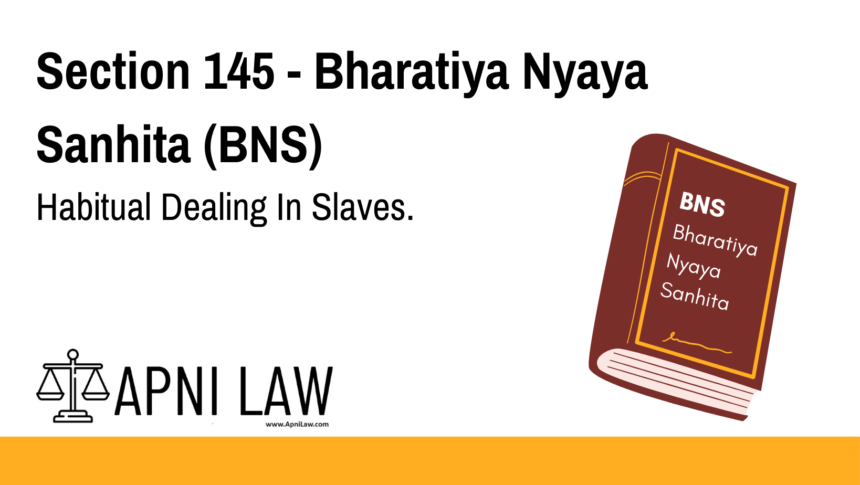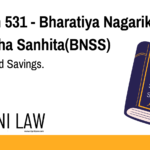Code: Section 145 BNS
Whoever habitually imports, exports, removes, buys, sells, traffics or deals in
slaves, shall be punished with imprisonment for life, or with imprisonment of either description
for a term not exceeding ten years, and shall also be liable to fine.
Explanation
Section 145 of the Bharatiya Nyaya Sanhita (BNS) strictly prohibits the habitual dealing in slaves. This law aims to prevent human trafficking and exploitation by imposing severe penalties on individuals engaged in such inhumane activities.
Key Provisions:
- Scope of the Offense: Covers all forms of transactions related to slavery, including import, export, removal, purchase, sale, and trafficking.
- Habitual Offenders: The law specifically targets individuals who are repeatedly involved in such offenses, ensuring stricter enforcement.
- Punishment:
- Imprisonment for life or
- Imprisonment for up to ten years
- Monetary fine as an additional penalty
This section serves as a deterrent against modern-day slavery and ensures stringent punishment for offenders.
Illustration
Example 1: International Human Trafficking Racket
A person operating an illegal human trafficking syndicate, involved in smuggling people across borders for forced labor, is caught by law enforcement. Under Section 145 BNS, they can be sentenced to life imprisonment due to habitual dealing in slaves.
Example 2: Illegal Labor Exploitation
A factory owner repeatedly purchases trafficked individuals and forces them to work under inhumane conditions. If found guilty, they could face up to ten years of imprisonment along with a fine under this section.
Example 3: Sale of Human Beings for Bonded Labor
A person engaged in selling minors into bonded labor for financial gain can be prosecuted under Section 145 BNS and sentenced accordingly.
Common Questions and Answers on Section 145 BNS
1. What constitutes ‘habitual’ dealing in slaves under Section 145?
A person is considered habitual if they engage in such activities repeatedly over a period of time, rather than a one-time offense.
2. What is the maximum punishment under this section?
The law prescribes life imprisonment as the maximum punishment, or imprisonment of up to ten years, along with a fine.
3. Does this section cover forced labor?
Yes, any form of forced labor that involves buying, selling, or trafficking humans falls under the purview of this section.
4. Can a first-time offender be punished under this section?
If the offense is serious and shows intent of repeated criminal behavior, even a first-time offender can face strict punishment.
5. How does Section 145 BNS help prevent human trafficking?
By imposing stringent penalties, this law acts as a deterrent against individuals and organizations engaging in human trafficking and modern slavery.
Conclusion
Section 145 of the BNS plays a crucial role in combating slavery and human trafficking in India. It ensures that habitual offenders face strict consequences, reinforcing the commitment to human rights and dignity. The provision serves as a powerful legal instrument to eliminate such inhumane practices from society.
For more legal insights, visit ApniLaw today! 🚀








